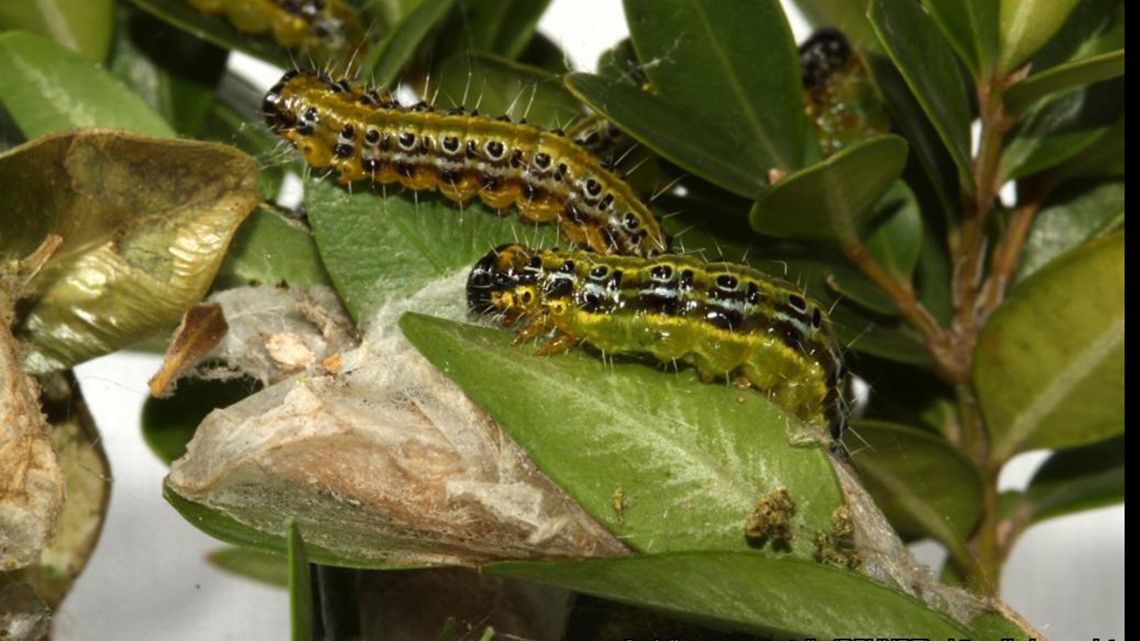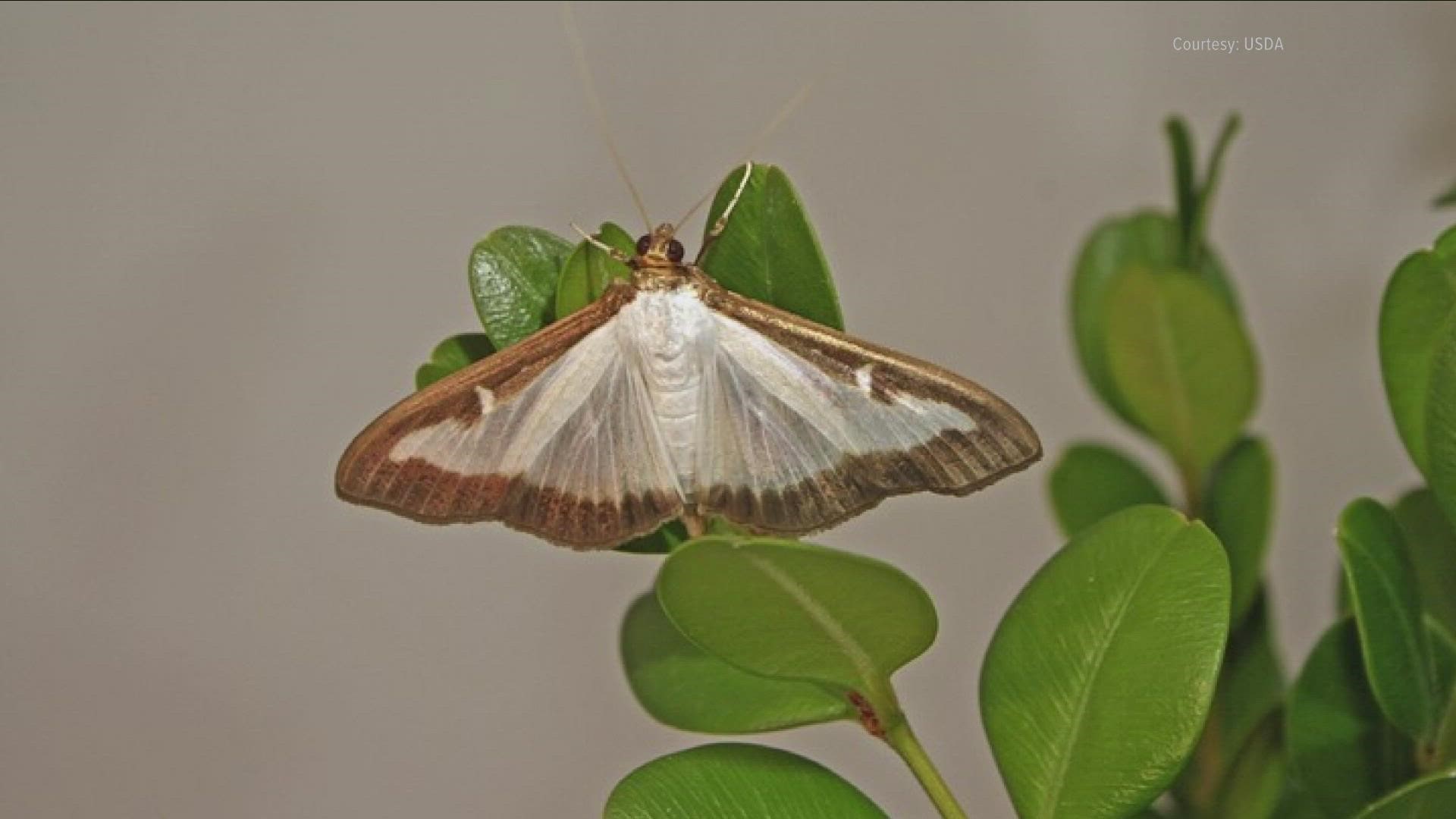BUFFALO, N.Y. — The United States Department of Agriculture (USDA) is warning residents in New York State to be on the lookout for the box tree moth.
The box tree moth is an invasive pest that will kill boxwood plants if not checked. The moth is native to East Asia. The caterpillars feed on boxwood plants and heavy infestations could remove leaves from the plant. Once the leaves are gone, the insects eat the bark, which leads to the plant's death.
The moth was first detected in Western New York in July 2021 in Niagara County. It's believed the moth either flew, or was blown into the area, from Canada.
So what should you do if you find the box tree moth on your plants? If you live in Niagara County, you don't have to do anything because they are aware of the invasive species in that area. If you live outside Niagara County, you're asked to take a picture of the insect and report it online at: https://arcg.is/1Df8Se.
Agricultural officials may ask permission to come onto your property to inspect boxwoods, or set box tree moth traps.
How can you protect your boxwood plants? You should remove any infested branches. Officials say if the plant is heavily infested, you should cut the boxwood at its base, it should grow back from its roots.


The box tree moth is not the only invasive species the USDA wants you to be on the lookout for.
In July, officials also warned of the spotted lanternfly. One was recently spotted in the Town of West Seneca near Sunshine Park.
According to the USDA, the spotted lanternfly is native to China and was first detected in the United States in 2014 in Pennsylvania.
They say the insect feeds on fruit, ornamental and woody trees, with the tree-of-heaven being one of their preferred hosts.
If the spotted lanternfly spreads in the U.S., it could damage grape, orchard, and logging industries.

